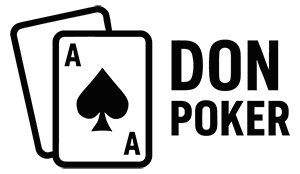Introduction: A Not-So-Subtle Question
Ah, poker. The game where fortunes are won and lost, but more importantly, where egos stretch and shrivel faster than a raisin in the sun. How many times have we found ourselves sitting at the table, half-awake, staring at our chips and wondering, “Am I playing poker, or just watching myself lose?” Let’s peel back the layers and figure out if you’re really in the game or just having a front-row seat to your own financial demise.
The Game Plan: More Than Just Cards
First things first, are you showing up without a plan? Because if that’s the case, congratulations—you’re officially a spectator in your own poker game. You might as well set up a comfy chair and grab some popcorn because watching you play will be the highlight of the night. Okay, maybe not for you, but definitely for everyone else at the table. A solid game plan should outline your strategy, your bankroll management, and maybe even where you plan to eat afterward—because if you don’t have a plan, you’ll end up in the poker equivalent of a bad sitcom.
Focus: Are You in the Moment or Off in La La Land?
Let’s talk about focus, shall we? Poker is all about being present—like a hipster at a coffee shop, you need to take it all in. Are you scanning the table, watching your opponents, and paying attention to their tells? Or are you too busy thinking about that dinner reservation you might miss or the awful Netflix show you half-watched? If you catch yourself daydreaming while your buddy bluffs the pot away, congratulations again—you’re not just playing poker; you’re snoozing through the World Series of Bad Decisions.
Emotional Rollercoasters: Are You on a Tilt?
Speaking of focus, let’s address that emotional rollercoaster. If you find yourself throwing chips around like confetti every time you lose a hand, then Houston, we have a problem. The term “tilt” isn’t just a fancy poker word; it’s a ticket to a one-way street headed straight to losing everything you’ve got. Keep your emotions in check, my friend. If you can’t manage your reactions, then nice try, but you might as well hang a sign around your neck that says “Please take my money.”
Bankroll Management: The $10 Lesson
Ah, bankroll management—the art of not going broke. If you’re playing at stakes you can’t afford simply because you saw your last opponent lose it all to a bad beat, congratulations, you may as well be sipping on a nice glass of “I’m about to lose my shirt.” Your bankroll should dictate your game. If you’re risking it all on a whim, then you’re not actually playing poker; you’re more like a contestant on a reality show where the prize is being broke and alone.
Knowing Your Limits: Do You Know When to Fold?
Let’s not forget about the most powerful action in poker: knowing when to fold. Just because you entered a hand doesn’t mean you should stay glued to it like a bad relationship. If your gut is screaming that you’re beat, it’s probably time to listen—unless you enjoy watching yourself lose, in which case, more power to you. But remember, folding isn’t a sign of weakness; it’s a strategic retreat. Think of it as the poker equivalent of knowing when to switch to decaf.
The Final Hand: Are You Playing or Just Watching?
So, are you really playing poker, or just watching yourself lose? The lines can blur if you’re not careful. Pay attention to your mental state, your bankroll, your emotional swings, and, most importantly, your focus. If you’re not ready to engage fully, you might want to consider sticking to the couch and letting someone else take the wheel. But if you are ready to step up your game, then gear up! It’s time to stop spectating and start winning.
Conclusion: Play Smart, Play to Win
In the end, poker should be a thrilling ride—not a sad parade of your losses. Take charge, play strategically, and let the chips fall where they may—preferably into your stack, not your opponent’s! So grab your lucky charm, focus up, and let’s turn that spectator complex into a winning attitude. Now, let’s go make some memories (and maybe some money) at the tables!
